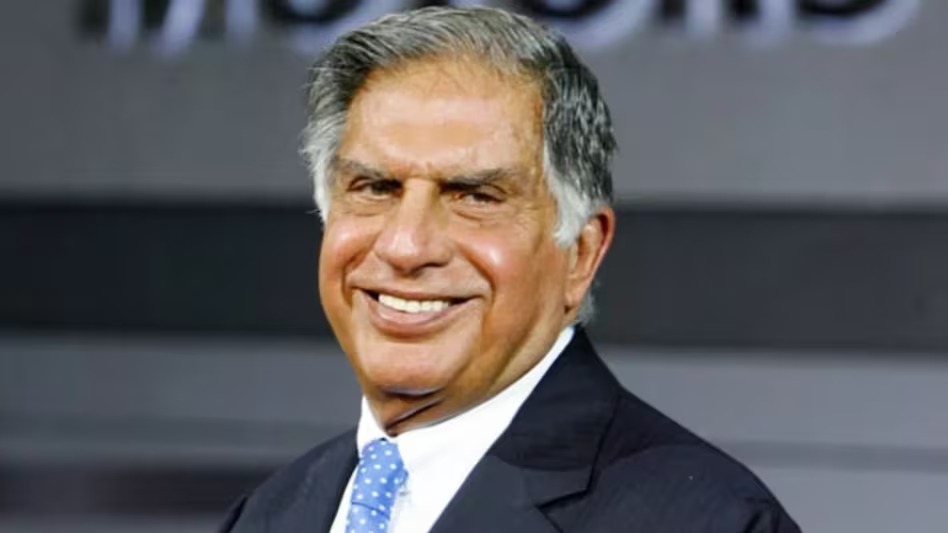- October 10, 2024
RIP Ratan Tata: How Tata stocks became wealth creators on D-Street in past 20 years

The passing of Ratan Tata marks the end of an era for one of India’s most esteemed business leaders. As the former chairman of Tata Sons, Ratan Tata played a pivotal role in transforming the Tata Group into a global powerhouse while fostering a culture of ethical business practices. Under his stewardship, Tata stocks became notable wealth creators on Dalal Street (D-Street), the financial hub of India. This article explores the remarkable journey of Tata stocks over the past two decades, highlighting the factors contributing to their success and the legacy Ratan Tata leaves behind. Founded in 1868 by Jamsetji Tata, the Tata Group has evolved into one of India’s largest and most diversified conglomerates. The group operates across various sectors, including steel, automobiles, information technology, telecommunications, and consumer goods. Key companies within the group include Tata Steel, Tata Motors, Tata Consultancy Services (TCS), and Tata Power, among others. Ratan Tata took over the reins in 1991 and led the group through a significant period of expansion and diversification. His vision was not just to grow the businesses but to do so responsibly, emphasizing corporate social responsibility and ethical business practices. Under his leadership, the Tata Group made several landmark acquisitions, including the purchase of Jaguar Land Rover and Corus Steel, which further enhanced its global footprint. Over the past 20 years, Tata stocks have delivered impressive returns, making them some of the most sought-after equities on D-Street. Let’s examine how and why Tata stocks have become wealth creators. One of the primary reasons Tata stocks have performed well is the strong fundamentals of its constituent companies. The Tata Group’s diverse portfolio allows it to mitigate risks associated with market volatility. For instance: Tata Consultancy Services (TCS): As a leading IT services provider, TCS has shown consistent revenue and profit growth. It is the largest IT exporter in India, and its stock has significantly appreciated over the years, contributing to wealth creation for shareholders. Tata Motors: While it has faced challenges, especially during economic downturns, Tata Motors has also rebounded with the introduction of electric vehicles (EVs) and innovative models, appealing to a new generation of consumers. Tata Steel: As one of the top steel producers in India, Tata Steel has benefited from rising demand and improved operational efficiency, further enhancing its stock performance. Ratan Tata’s leadership style was characterized by a focus on innovation and strategic growth. He encouraged a culture of creativity and adaptability within the group. This strategic mindset enabled Tata companies to pivot quickly in response to market demands. For example, Tata Motors’ investment in electric and hybrid vehicles aligns with global trends toward sustainability. This forward-thinking approach has resonated well with investors, contributing to long-term stock appreciation. Ratan Tata was a firm believer in the philosophy of “trustee-ship,” emphasizing that businesses should operate for the benefit of society at large. The Tata Group has long been associated with philanthropic initiatives, contributing significantly to education, healthcare, and rural development.
This commitment to CSR has enhanced the Tata brand’s reputation, fostering trust among consumers and investors alike. A strong corporate image often translates into stock performance, as investors are increasingly looking to invest in socially responsible companies. Under Ratan Tata, the Tata Group made several strategic acquisitions that have strengthened its market position globally. The acquisition of Jaguar Land Rover in 2008 is a prime example. Initially viewed with skepticism, this acquisition turned out to be a masterstroke, revitalizing the brand and contributing significantly to Tata Motors’ revenue. These acquisitions have not only diversified revenue streams but also enhanced the group’s presence in international markets, which is critical for sustained growth. The Tata Group is known for its disciplined financial management. This has helped its companies maintain healthy balance sheets, even during economic downturns. Effective cost management, prudent capital allocation, and a focus on operational efficiency have bolstered the financial health of Tata companies, providing a solid foundation for stock appreciation. Tata stocks have benefitted from favorable market trends over the past two decades. The overall bullish sentiment on D-Street has also played a role in elevating the stocks of Tata companies. The growing interest in technology and sustainability has particularly favored companies like TCS and Tata Motors. Moreover, the long-term focus of Tata Group companies resonates well with institutional investors who are increasingly looking for stable, growth-oriented stocks in their portfolios. Ratan Tata’s retirement in 2012 marked a significant transition for the Tata Group, but the subsequent leadership under Cyrus Mistry and later Natarajan Chandrasekaran has continued to uphold Ratan Tata’s vision. The seamless transition of leadership has provided stability and confidence to investors, maintaining the upward trajectory of Tata stocks. The governance structure of the Tata Group, characterized by transparency and accountability, has also reinforced investor confidence. This has made Tata stocks attractive for long-term investment. Ratan Tata’s legacy is deeply intertwined with the success of the Tata Group. His vision and leadership have transformed the group into a global brand, and his emphasis on ethical business practices has set a benchmark for corporate governance in India. As Tata stocks continue to perform well, Ratan Tata’s philosophy of responsibility and trust in business will likely influence future generations of leaders. His commitment to innovation, diversification, and social responsibility will remain a guiding force for the group. The wealth creation journey of Tata stocks on D-Street over the past 20 years is a testament to the vision and leadership of Ratan Tata. His focus on strong fundamentals, innovative strategies, and corporate social responsibility has not only propelled Tata companies to new heights but has also set a standard for ethical business practices in India. As the industry mourns the loss of Ratan Tata, investors and analysts will continue to celebrate the legacy he leaves behind—a legacy of resilience, innovation, and the unwavering belief.



